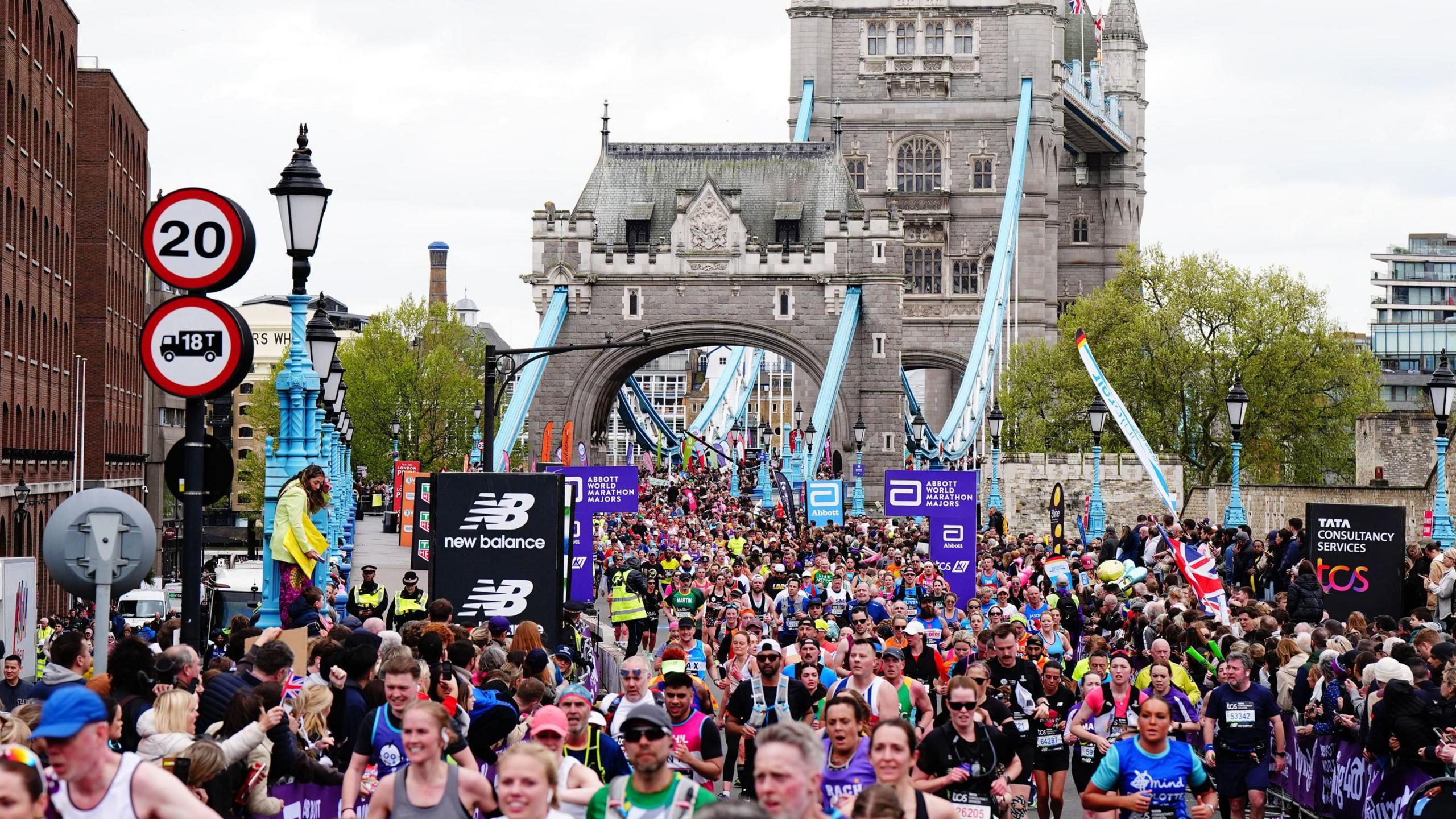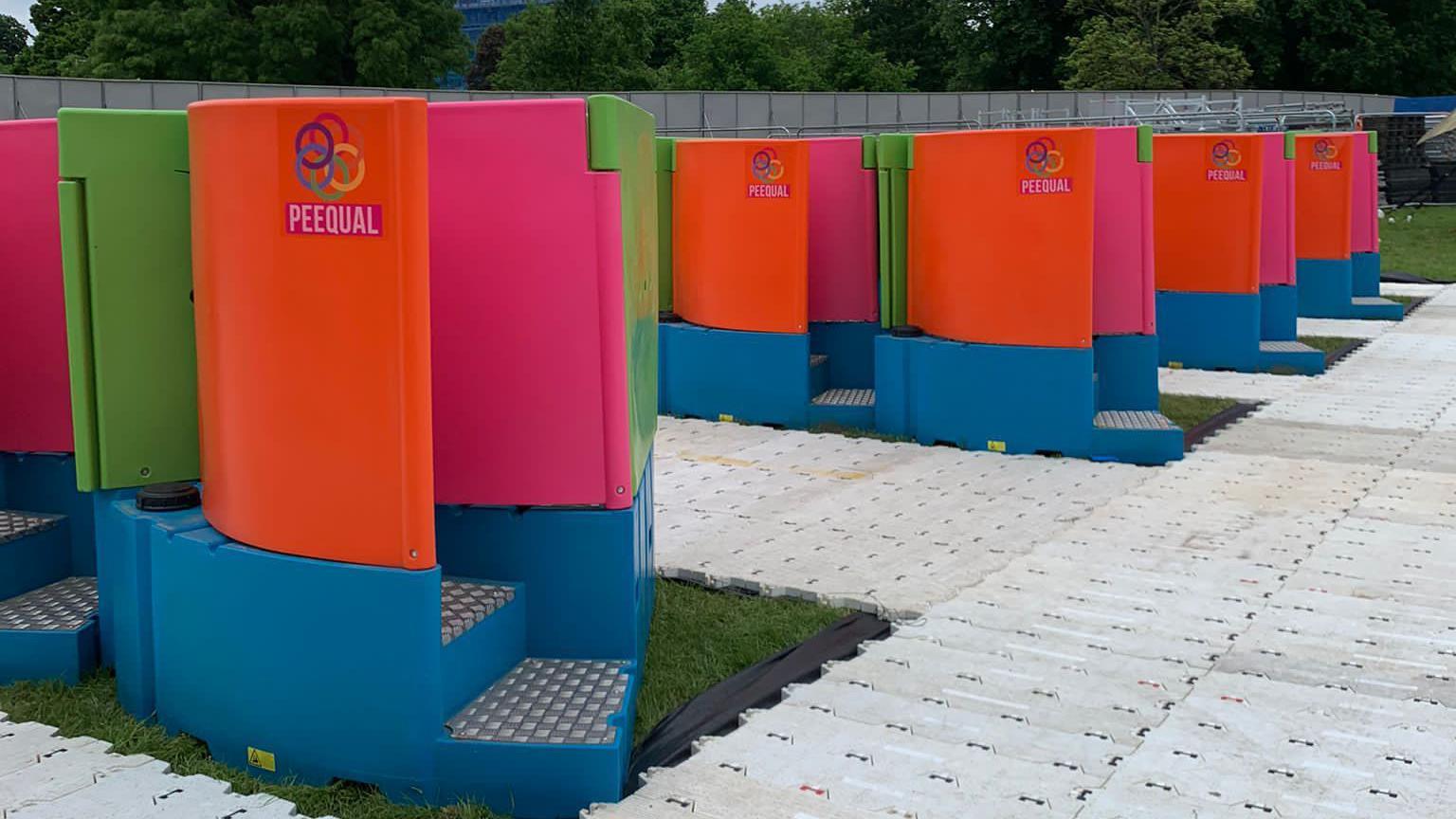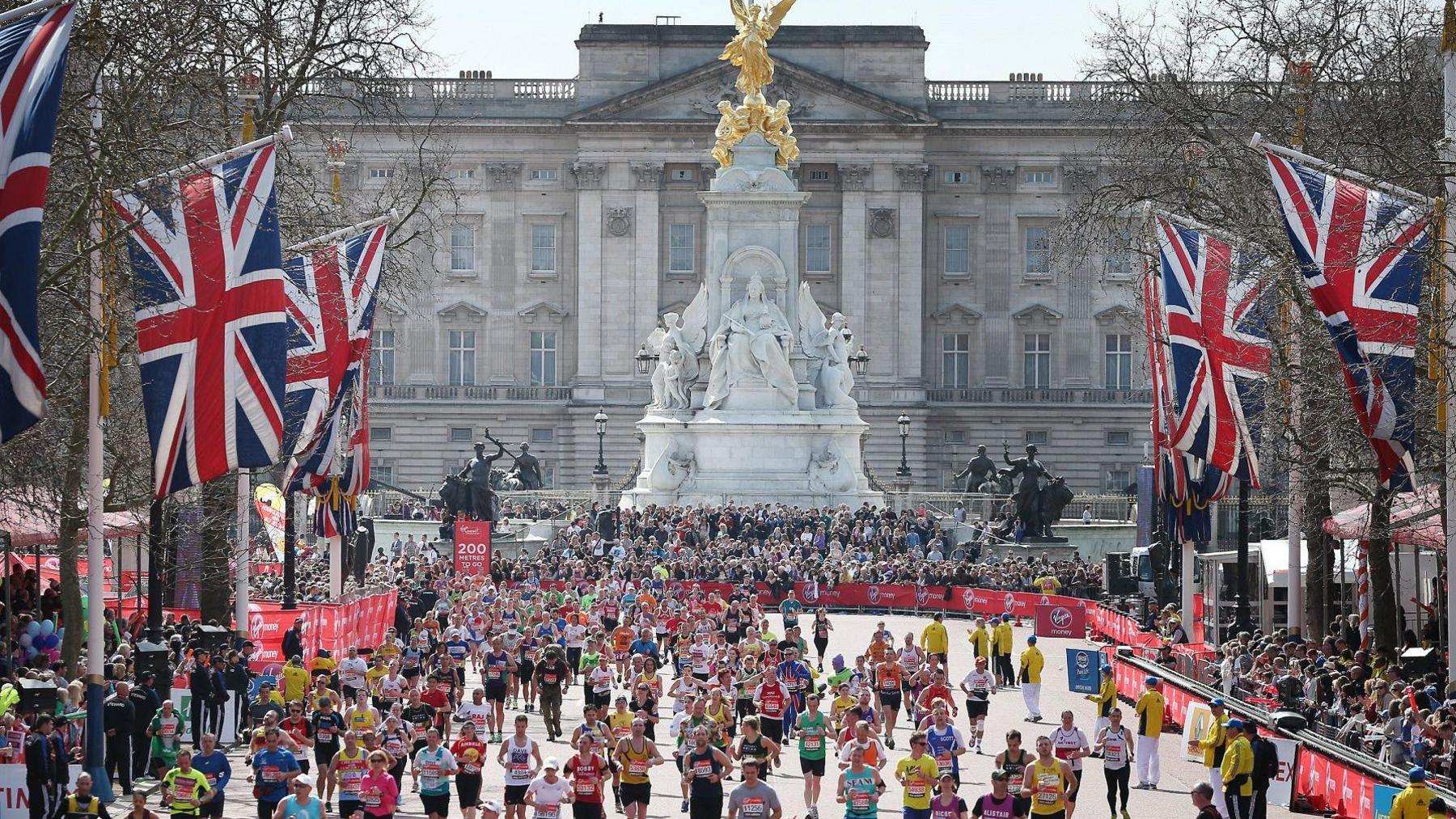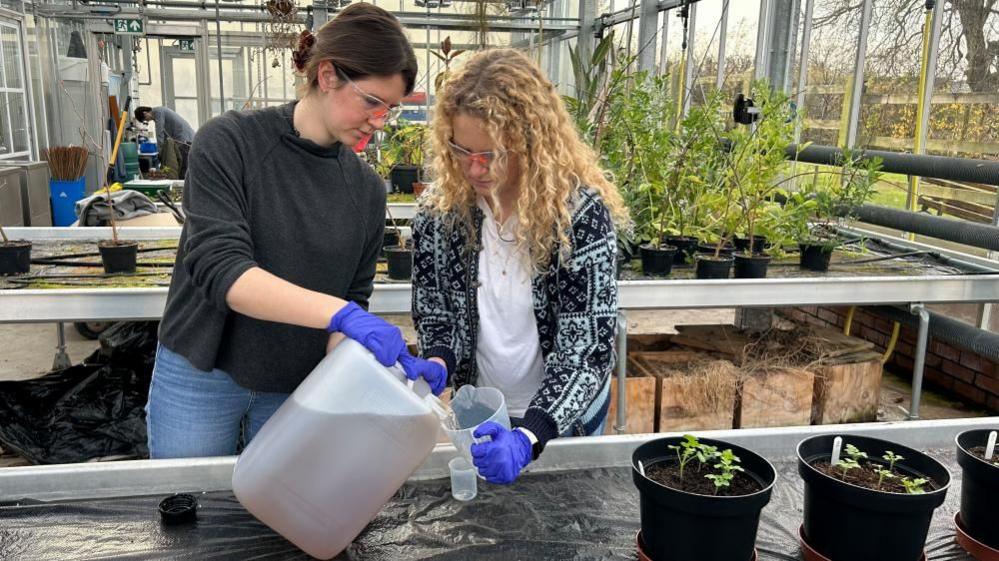Marathon runners' urine to be made into fertiliser

If used only for growing, 1,000 litres of runners' urine could help grow wheat for about 195 loaves of bread
- Published
Urine from thousands of London Marathon participants is to be reused to make fertiliser for crops.
An estimated 1,000 litres of urine will be collected from nine women's urinals placed at the start.
NPK Recovery, a Bristol-based start-up, will process it into safe fertiliser for wheat, a crop hungry for urine's nitrogen content. It will then be used for field tests to improve the fertiliser and evaluate its performance on wheat.
Susan Farrell, who is running the marathon for the NSPCC, said: "It's brilliant to think that the nervous wees of thousands of women are helping a good cause."

The women's urinals which will collect the urine will be positioned at the start
'Onward use'
NPK Recovery will use women's urine, as it only manufactures women's urinals, although men's urine can also be used for the same purpose.
The process to convert the urine into liquid fertiliser is similar to treating waste water.
Bacteria is added to the urine which breaks it down into the ammonium nitrate that plants need to grow.
NPK Recovery said it hoped its plan would help to reduce the carbon footprint of the popular marathon.
Its founder, Hannah Vandenbergh, said: "Urine doesn't have to be a waste product and we're excited to be playing a small part in helping support the sustainability commitments of the iconic TCS London Marathon."
Kate Chapman, head of sustainability at London Marathon Events, said: "Part of our environmental strategy is to try and find an 'onward use' for all waste that is generated at our events, for instance composting, reusing, upcycling and much more besides.
"We are delighted that the urine from the urinals can be used for something so positive rather than going to waste."
NPK Recovery said if last year's 53,700 London Marathon finishers' urine had been captured, it could have made enough fertiliser for wheat to be turned into 3,142 loaves of bread.
Listen to the best of BBC Radio London on Sounds and follow BBC London on Facebook, external, X, external and Instagram, external. Send your story ideas to hello.bbclondon@bbc.co.uk, external
Related topics
- Attribution
- Published25 April

- Published9 December 2024
